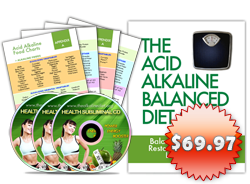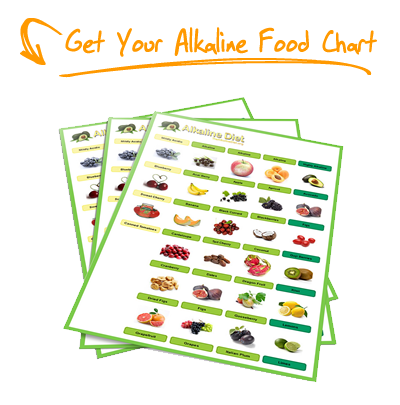The Hidden Risks on Dietary Oil
Posted on 31. Aug, 2010 by Staff Writer Candy Del Carmen in Alkaline Diet Tips, Blog
Most of the time, consumers are deceived by manufacturers. Ironically, many products are packaged and marketed with many health benefits and people are blinded with the hidden truth that lies on the misleading and newfangled ingredients on the label. Like for instance, there are types of dietary oil that are not for human consumption but intended for industrial purposes. What are those? These are soybean oil, canola, and corn oil.
Generally, the danger lies in every vegetable oil like in corn and soy oil are unknown to general public. The antioxidant and phytochemicals are actually removed from grains so that the oil will not turn rancid very quickly. Another thing, manufacturers also process these oil using chlorine beach and hexane; some oils have preservatives and food coloring; and most oils are deodorized.
To further elaborate, this article will reveal how these dietary oils become unhealthy and toxic for human consumption. Various health implications and damages can be done by using these vegetable oils in the long run. Common symptoms are nutrition deficiencies, digestive problems, respiratory ailments, anemia, low birth weights, foggy memory, loss of vision, increase rate of stroke and heart attacks, and increase rate of cancer.
Canola Oil
With real name Low Erecic Acid Rape or known as “rape oil” .It is very easy and cheap to produce from genetically engineered rapeseed. Rapeseed is used originally for industrial machinery as fuel, illuminant for magazine pages, synthetic rubber base, and soap. From the term rapeseed oil, it transformed to what we known as canola oil since it was first developed in Canada. With high technology and genetic engineering, manufacturers claimed that it is already safe for human consumption. There were accusations that Food and Drug Administration received $50 million dollars from Canadian government so that Canola oil can be enlisted on GRAs (Generally Recognized as Safe) list. So from then on, although many researches are linking this toxic oil to cancer and heart disease, EPA already considered canola oil with low chronic toxicities since there were no conclusive results from researches showed toxic effects in human.
No matter how we think that canola oil is safe for consumption, here is another case point to consider: there were controversies when rapeseed was used in poultry animal feeds in Europe. Reportedly, these animals went mad and attacked people, developed various diseases including blindness. That was revealed in John Thomas book titled Young Again.
There were clamors that FDA must be responsible to conduct human studies before they can enlist canola oil and its other counterparts as safe for human consumption wherein it should be intended for industrial use only. The cumulative health implications may take effect after 10 years of long term consumption of canola oil and it takes long period of time before symptoms manifest. A possible health problem it may pose is the destruction of the myelin sheath, the coating that protects the surrounding nerves. When this sheath is damaged, this may lead to uncontrollable movements.
Food consumers may find canola oil in forms of margarines, ingredients in most processed foods such as potato and chips.
Soybean Oil
The mere fact that soy gives healthy connotation; soybean has been part of many debates because of many clinical studies claimed that these are not considered as healthy foods. The processing methods remove toxins naturally present in soybeans and there are carcinogenic residues made by high temperatures, petroleum solvents, alkali and acid baths during the high tech processing of soybeans.
The most affected to its harmful effects are the children because the phytoestrogen is associated to damaging the neurological and brain leading to violent tendency of babies or developing ADHD. For adults, many clinical studies found that it can be linked to several diseases like infertility, malnutrition, digestive distress, cognitive decline, thyroid dysfunction, immune system breakdown, cardiovascular diseases, and some types of cancer like leukemia.
Beware with products with soy protein concentrate, texturized vegetable protein, or protein isolate. These can be found on what we think are safe for us like shake powders, energy bars, canned tuna, and even veggie burgers. Soybean oils are also prominent ingredients in packaged products like cookies, crackers, and French fries.
Corn Oil
Many manufacturers find refined corn oil as excellent in frying with its quality, fine taste, and resistance to discoloration. Of course, no one will dispute the important nutritional benefits of corn from where it derives, nevertheless, the polyunsaturated acid content of corn oil that can inhibit essential enzymes is said to be responsible for cancer growth and the reason why it is associated to colon cancer. This polyunsaturated acid becomes unhealthy when heated in high temperature leading to its high toxicity level. The process of producing corn oil undergoes oxidation and generates free radical that is damaging to cells and implicates in several degenerative diseases, including cancer.
In some studies in Japan, researches found that the long term consumption of corn oil can increase the esophageal cancer that leads to mortality rate. In a study conducted to Sprague-Dawley rats, it revealed how long term effect of dietary corn oil can promote azoxymethane-induced colon cancer. Same thing goes with the study conducted by University of Miami with their observation and positively correlate the mortality rate and the dietary corn consumption in cases of esophageal cancer in China.
Healthy Tips and Alternatives
- Oils can be very toxic if subjected to high temperatures. Therefore, always maintain low temperature when cooking. Extra virgin olive oil becomes prominent healthy alternative in cooking, baking, and preparing salads.
- Instead of munching baked and frozen products with unknown ingredients, you can have healthy seeds and nuts, as much as possible. You can avoid these unhealthy products with newfangled term indicated as hydrogenated fats or polyunsaturated oils.
- Sesame oil are said to be safe and the antioxidant properties are not destroyed in high temperature. On the other hand, other types of oil like sunflower, safflower, and cottonseed oils are not recommended to be subjected in high temperature for these contain too much essential omega 6 fatty acids which according to related researches, these should be taken with limitation and should never be consumed after they are subjected to high temperature.
Marketers of these dietary oils heightened the consumers’ awareness of health benefits and successfully tricked the public behind many hidden harmful effects of these products to public health. However, it is a real challenge for all of us to make optimum food choices that are real healthy. Know how to read labels and distinguish what are the misleading ingredients used to lure the consumers. The health benefits promoted by manufacturers can be outweighed if people become aware on its proven risks to human. There are many clinical studies linking these oils to many possible diseases from long term consumption. It is up to you then to digest these essential information that reveals the buried truth about dietary oils.





Recent Comments